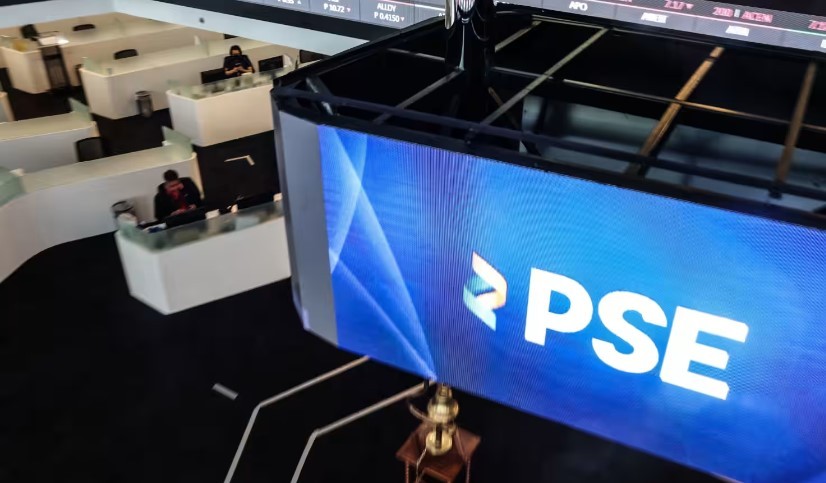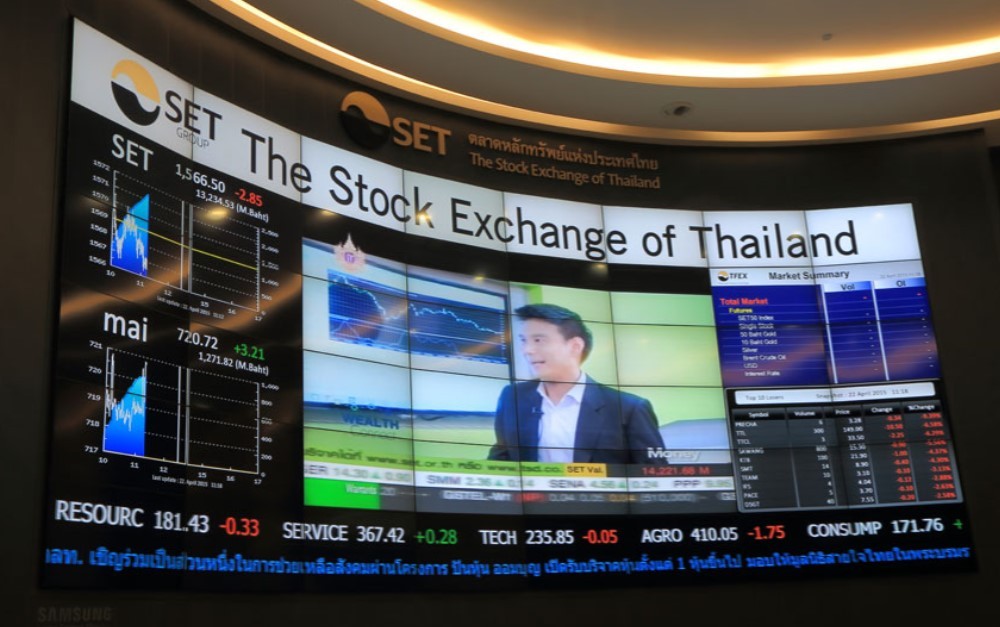What Time is the Opening and Closing of the Indian Stock Market?
 |
| The Indian Stock Market. Photo: KnowInsiders |
| Table of Contents |
Given that stock market timings determine the opening and closing hours of the stock market, it can be crucial for investors to comprehend them. Investors can purchase and sell stocks of publicly traded companies on the stock market. As a result, stock market timings can change based on the nation and stock exchange.
What is the Purpose of a Stock Market Exchange?
The money a nation earns on a daily basis is reflected in its stock markets. The main purpose of the stock market is to assist businesses worldwide in raising capital, even though it functions on behalf of the nation. Companies must sell the public their private ownership of the company in the form of stocks in order to raise capital through them. These shares represent the company's capitalization. The quantity and value of stocks available on the market determine how much they increase or decrease in value over time.
The stock market also facilitates regulated stock trading for investment purposes. Global stock exchanges enable individuals from all over the world to buy or sell stocks to other global participants. Investors find it easier to understand which stock to buy and how to invest in it because stocks come with all the information about them.
Share Market Timings in India
You must have both an online trading account and an online demat account in order to trade on the Indian financial markets. The demat account functions as a digital repository for your shares. You can trade in the financial markets, however, with the trading account. As needed, you can purchase, hold, and sell stocks and other financial assets using an online trading account in conjunction with an online demat account as well.
Before you trade or make investments in the markets, you should also be aware of the stock market timings. The share market timings are the same across the nation. You can use this information to buy, sell, or invest in shares from anywhere in the nation once you are aware of the stock market timings. Whether you wish to trade on the BSE or NSE, the two main stock exchanges in India, the timings are also the same.
The stock market opens at 9:15 AM and closes at 3:30 PM, in accordance with standard trading hours. Pre-opening begins at 9:15 AM, and post-closing takes place at 3:30 PM. The pre-opening session, the regular session, and the post-closing session make up the share market timings overall.
Read More: Can Foreigners Buy or Invest in the Indian Stock Market?
 |
| Photo: MoneyMint |
Pre-opening session
Meaning: The Pre-Open Market Session is a recent exchange-side innovation designed to determine a stock's optimal opening price for the current trading session. Pre-open market sessions are held on both of the main Indian stock exchanges, the NSE and BSE, and last from 9:00 AM to 9:15 AM, or fifteen minutes before the trading session begins at 9:15 AM.
Its goal is to reduce extreme volatility brought on by a significant announcement or event that occurs overnight before the market opens for business.
Investors may be impacted by special events such as a company's announcement of a merger or acquisition, the delisting of stocks, debt restructuring, credit rating downgrades, etc.
In other words, the purpose of the pre-open market session in the Indian stock market is to determine the stock's correct price.
Pre-opening hours begin at 9:00 AM and run until 9:00 AM. It is separated into three additional sections. You can place orders to purchase or sell shares for a set amount of time during one of these sections. Let's examine the pre-opening session's specifics below.
Section 1: From 09:00 AM to 09:08 AM
During these 8 minutes, you can place orders to buy or sell various stocks. In addition, you can modify or cancel any orders that you have placed. When the normal trading session begins at 09:15 a.m., orders placed during this portion of the pre-opening session are prioritized in the order queue.
Section 2: From 09:08 AM to 09:12 AM
During these four minutes, you are unable to place new orders, modify existing ones, or cancel any orders. This section is required so that price matching can be done. Price matching requires comparing demand and supply. It helps to determine the final prices at which various shares will be traded when the market opens at 09:15 a.m.
Section 3: From 09:12 AM to 09:15 AM
This 3-minute window serves as a bridge between the pre-opening session and normal trading hours. It acts as a buffer, easing the transition into the regular trading session. Again, during these three minutes, no orders can be placed, modified, or cancelled.
Regular trading session:
Normal/Limited Physical Market Opens: 09:15 hours
Normal/Limited Physical Market Close: 15:30 hours
During these hours, all transactions are conducted using a bilateral order matching system, which means that prices are determined by demand and supply. Because the bilateral order matching system is volatile and includes several market fluctuations that ultimately affect security prices, the multi-order system was developed for the pre-opening session.
Post-closing session
This session begins when the regular trading session comes to a close at 03:30 PM. The post-closing session, which runs up to 04:00 PM, consists of two sections.
Section 1: From 03:30 PM to 03:40 PM
During these 10 minutes, the closing prices of stocks are calculated by taking the weighted average of the stock prices traded between 03:00 PM and 03:30 PM. The closing prices of indices such as the Sensex and Nifty are calculated by taking the weighted average price of all securities listed in the index.
Section 2: From 03:40 PM to 04:00 PM
In this 20-minute section, you can still place buy and sell orders. But the orders are confirmed only if there are sufficient numbers of buyers and sellers in the market.
What is Muhurat Trading
Muhurat trading is the auspicious stock market trading for one hour on Diwali (Deepawali). It is a symbolic and ancient ritual that the trading community has preserved and practiced for centuries. Because Diwali coincides with the start of the New Year, it is believed that muhurat trading on this day brings wealth and prosperity for the entire year.
Timings of Muhurat trading
This Diwali, the NSE's Muhurat trading session will begin at 6:15 p.m. and end at 7:15. The special trading window opens after the Hindu Panchang, signaling the start of a new Samvat or Samvat 2078 -- the Hindu calendar year that begins on Diwali -- and it is believed that Muhurat trading brings prosperity and wealth throughout the year.
Different Session of Stock Market Timings in India
| Timings | Particular |
|---|---|
| 9:00 AM to 9:15 AM | Pre-Opening Session |
| 9:15 AM to 3:30 PM | Normal Trading Session |
| 3:30 PM to 3:40 PM | Closing Price Calculation Session |
| 3:40 PM to 4:00 PM | Post-Closing Session |
Holiday List for NSE and BSE
Here is a list of holidays for NSE and BSE.
National Holidays – National holidays in India include Independence Day, Republic Day, and Gandhi Jayanti.
Regional Holidays – Regional holidays vary depending on the state or region.
Trading Holidays – Weekends and additional stock exchange-observed holidays are considered trading holidays. For unforeseen circumstances or events such as assembly elections, exchanges schedule and observe trading holidays. Investors ought to review the list of holidays and adjust their investment strategy accordingly.
Important NoteMost investors are unaware that the stock market offers pre-opening and post-closing sessions. Most investors trade stocks only during the normal market session. Anyone can trade during pre-opening and post-closing sessions, but stock brokers may not activate this feature in your trading account as standard because they do not want a large number of new traders trading during these sessions, when volatility is much higher due to low volume. If the pre-open market session feature is not included by default, you will need to contact your broker to activate it. |
Trading Holidays For Equity (NSE & BSE)
Sr. No Holidays
1 Republic Day
2 Mahashivratri
3 Holi
4 Good Friday
5 Dr. Baba Saheb Ambedkar Jayanti
6 Ram Navami
7 Id-Ul-Fitr (Ramzan Id)
8 Bakri Id
9 Moharram
10 Ganesh Chaturthi
11 Dussehra
12 Diwali-Laxmi Pujan *
13 Diwali-Balipratipada
14 Gurunanak Jayanti
* Special Muhurat Trading Session as per time slot defined by exchanges.
Trading Holidays for Commodity(MCX/NCDEX)
| Sr. No | Holidays | Morning | Evening |
|---|---|---|---|
| 1 | New Year Day | Open | Closed |
| 2 | Republic Day | Closed | Closed |
| 3 | Mahashivratri | Closed | Open |
| 4 | Holi | Closed | Open |
| 5 | Good Friday | Closed | Closed |
| 6 | Ambedkar Jayanti | Closed | Open |
| 7 | Ram Navmi | Closed | Open |
| 8 | Ramzan Id (Id-Ul-Fitr) | Closed | Open |
| 9 | Bakri Id | Closed | Open |
| 10 | Moharram | Closed | Open |
| 11 | Ganesh Chaturthi | Closed | Open |
| 12 | Dassera | Closed | Open |
| 13 | Diwali - Laxmi Pujan | Closed | Open |
| 14 | Diwali - Balipratipada | Closed | Open |
| 15 | Guru Nanak Jayanti | Closed | Open |
Does the India National Stock Exchange have After-Hours Trading?
No, there is no pre-market or after-hours trading on the India National Stock Exchange. Please get in touch with us if you think this is missing anything. Make sure to specify the market you're talking about.
On the India National Stock Exchange, shares are always tradeable during regular business hours (as mentioned above).
Extended Trading Hours are periods of time when electronic trading is permitted both before and after the official trading session. Pre-market and after-hours trading may follow different trading regulations and typically have lower volume than regular trading hours.
Extended hours can result in higher volatility, wider spreads, and more price uncertainty due to the limited liquidity. Usually, important news, including earnings reports, are released after regular trading hours. In after-hours markets, this may cause significant price fluctuations.
Does the India National Stock Exchange Close for Lunch?
No, lunch is not a closed time for the India National Stock Exchange.
Lunchtime is when many markets in Asia and a few in the Middle East close. Most other parts of the world's markets are open for business during lunchtime. Lunch breaks are taken into account by both the TradingHours.com API and our market countdown.
Generally speaking, liquidity is lower in the middle of the day. The majority of trading occurs in the early and late hours of the day. Shorter trading windows can improve market efficiency by lowering spreads and boosting liquidity.
What is a Block Deal Session?
The stock exchange executes large orders of a minimum number of shares or minimum value of transactions at a single price during the block deal session. These sales are typically made in order to steer clear of market swings.
Block Deal Session (NSE Timings):
Morning Window: This window shall operate between 08:45 AM to 09:00 AM
Afternoon Window: This window shall operate between 02:05 PM to 2:20 PM
Importance of Time in the Stock MarketWorldwide Markets and Time ZonesBecause different time zones exist between countries, share market timing may vary. To make wise decisions, investors must stay abreast of the world markets and their timing. For instance, in the United States, the New York Stock Exchange (NYSE) is open from 9:30 am to 4 pm Eastern Standard Time (EST), which is corresponding to 6:30 pm to 1 am Indian Standard Time (IST). Investors must modify their trading strategies in light of the effects that world events have on the stock market. Economic News's Effect on India's Share Market TimeEconomic news can have a big impact on the stock market, such as when GDP or inflation data is released. Positive economic news, for instance, may cause the stock prices of businesses that stand to gain from the news to rise. Conversely, bad news has the potential to cause stock values to drop. As a result, investors must understand how economic news affects the stock market and adjust their strategies accordingly. Trading Plans Based on Timings of the Stock MarketDepending on the timing of the stock market, investors can use a variety of trading strategies. For example, during the opening hours of the stock market, when volatility is highest, traders typically engage in intraday trading. Conversely, swing traders maintain their positions for a few days in order to profit from changes in the market. Mutual funds and other long-term investors invest in stocks for the long term and are not particularly concerned with short-term price swings. Investors ought to choose a trading approach based on their risk tolerance and investing objectives. |
FAQs
After Market Orders: What Are They?
Investors can place buy or sell orders after regular trading hours or the market close time by using after-market orders. When the market opens the following day, these orders are carried out.
Can stocks be purchased after market hours?
Orders to buy and sell stocks can be placed after the stock buying period ends, and trades are executed during regular trading hours on the following trading day.
Can we purchase stock on Sunday?
Regretfully, no, most major stock markets, including the Nasdaq and the New York Stock Exchange (NYSE), do not allow you to purchase shares on Sundays. Depending on the exchange, these markets may or may not be open from Monday through Friday.
What are the times for trading commodities?
The Multi Commodity Exchange of India Ltd (MCX) controls the timing of the commodity market. The morning and evening sessions are separate, though. The time for purchasing shares in the morning is 9:00 am and ends at 5:00 pm, whereas the time for purchasing stocks in the evening is 5:00 pm and ends at either 11:30 pm or 11:55 pm.
Can I purchase stock after hours?
The two main exchanges in India are the National Stock Exchange of India (NSE) and the Bombay Stock Exchange (BSE). While NSE is open overnight from 3:45 pm to 8:57 am, BSE's equity trading hours are from 3:45 pm to 8:59 am.
 What Time Does Euronext Paris Stock Exchange Open and Close? What Time Does Euronext Paris Stock Exchange Open and Close? Learn about what time Euronext Paris stock exchange opens and closes. |
 What Holidays is the U.S Stock Market Closed 2022? What Holidays is the U.S Stock Market Closed 2022? The US stock market closes on some US holidays every year. Scroll down to know more about the holiday time, holiday schedules of the US ... |
 Can Foreigners Buy or Invest in Chinese Stock Market? Can Foreigners Buy or Invest in Chinese Stock Market? Are you a foreigner and wondering how to invest in Chinese stock exchange market? Read on the article to know basic steps. |


























